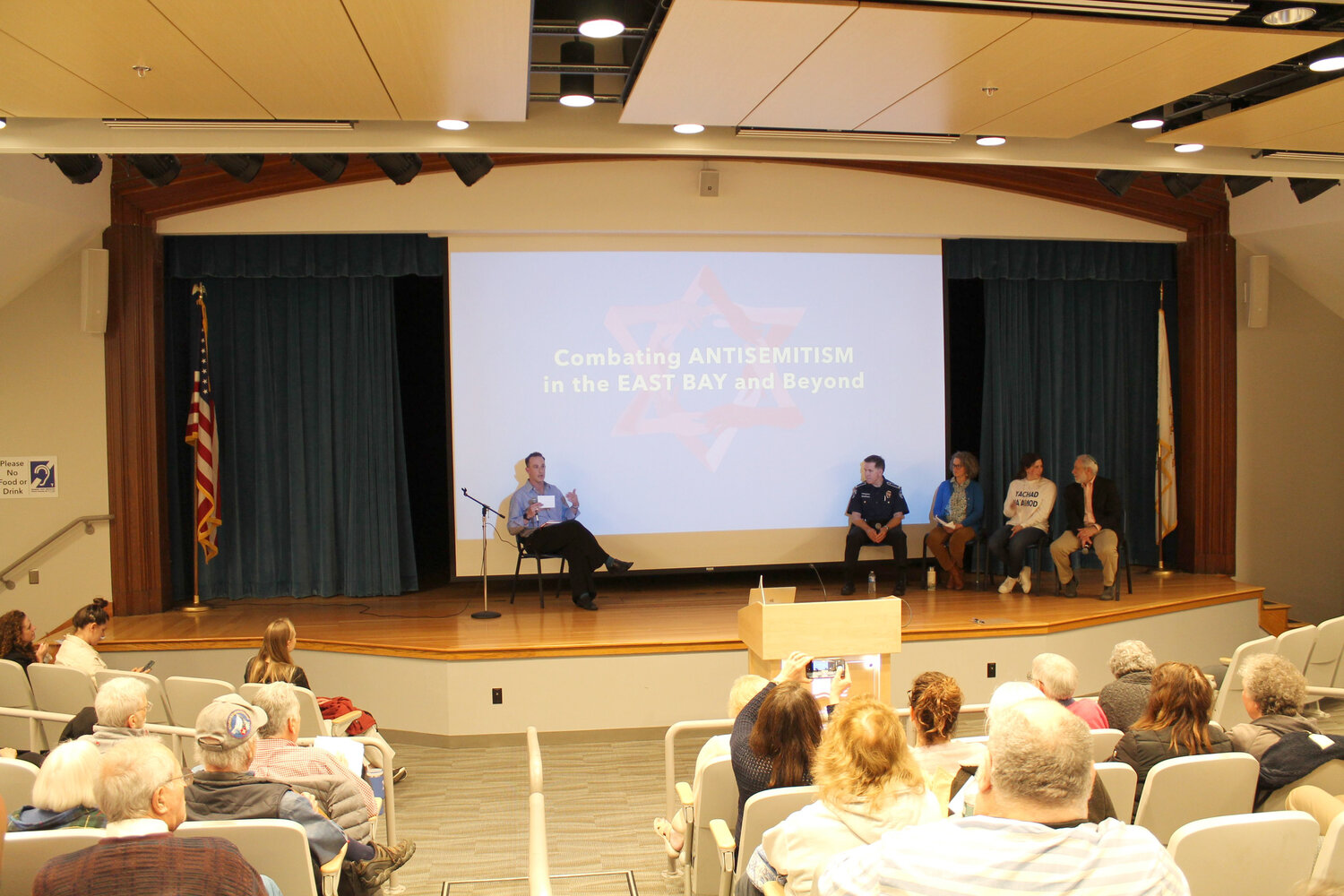Program on combating antisemitism in the East Bay draws a crowd
BARRINGTON – More than 85 people filled the Barrington Public Library auditorium on May 3 to support the East Bay’s Jewish population.
Attendees were welcomed to “Combating Antisemitism in the East Bay and Beyond” by volunteer organizer Jacob Brier, who began the program with a moment of silence to honor all the innocent lives lost in Gaza and Israel.
Brier also shared their experiences with antisemitism as a member of the Barrington Town Council – and since then.
“It came from within and beyond town, across the full range of the political spectrum, from members of the public as well as colleagues serving in government,” they said.
Wendy Joering, executive director of the Sandra Bornstein Holocaust Education Center, in Providence, started the formal presentation with a history of antisemitism and the broad impact of the Holocaust, beyond the Jewish community.
“Those who hate the Jewish people tend to be equal opportunity haters,” she said, drawing nods from audience members. Antisemitism is often paired with anti-Black, anti-gay and other discrimination, she said.
Stephanie Hague, chief policy officer for the Jewish Alliance of Greater Rhode Island, then shared information about Rhode Island’s Jewish community, statistics about the years-long rise of antisemitism, the forms it takes, and how allies can support Jewish neighbors.
Among her suggestions were that people make public statements supporting the Jewish community and condemning antisemitism; that they don’t ask Jewish people to speak for the Israeli government; and that they provide opportunities for positive interactions with the Jewish community and Jewish culture.
A panel discussion included three members of the R.I. Jewish community: Temple Habonim’s Rabbi Howard Voss-Altman, Bristol Warren Regional School Committee member Carly Reich and Barrington High School student Dahlia Weller. Col. Michael Correia, the Barrington Police Department’s chief of police, also participated, sharing his experiences investigating antisemitic incidents.
Chief Correia expressed gratitude for being included in the program and said that it was his department’s role to “reduce the fear and anxiety,” which he knows has existed, and recently increased, in the Jewish community.
Reich shared a metaphor about the community being like a beloved old garden. People have to “commit to do the work to tend it, water it, weed it …. To actually bend down and get your hands dirty, knowing that it’s for the greater good.”
Rabbi Voss-Altman said that security needs at Jewish institutions have increased substantially during his career. He said there have been bomb threats made to Temple Habonim, in Barrington – Bristol County’s only synagogue – nearly once a month over the past six months, and that other area temples have received even more. He urged attendees to listen to Jewish people’s experiences to learn about them.
Weller spoke about her efforts to have Holocaust and antisemitism education incorporated in school curriculums.
She also shared an anecdote about a game in one of her classes that used an offensive name for a team. Weller explained how using “Anne Frank” as a team name impacted her, and that the teacher understood. This was an important reminder, Weller said, as she “truly believes most of the antisemitism we see isn’t coming from a place of hate, but from ignorance.”
At the program’s close, a Temple Habonim member told attendees that “although Rabbi Howard said our doors are locked, we are welcoming.” She encouraged non-Jews to visit Temple Habonim or another synagogue to continue learning.
Submitted by Temple Habonim’s Committee to Counter Antisemitism and Hate, with reporting by member Jacob Brier.








